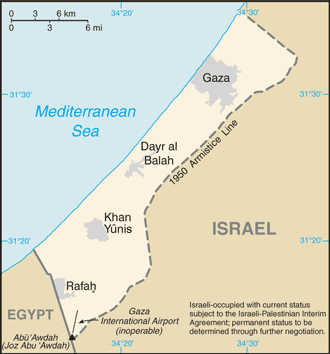The Global Language Dictionary prepared by The Israel Project is a detailed manual to assist pro-Israel advocates who are communicating with Americans. “The goal is to win new hearts and minds for Israel without losing the support Israel already has.” See here and here.
The drafters tested what works and what doesn’t on a sample of Americans.
The Israel Project report concedes that justifying the settlements to ordinary Americans is a tough sell.
“Nothing is tougher to articulate effectively to neutral Americans than a message in favour of the settlements. Let me be clear about this conclusion. Plenty of Israeli and American Jewish leaders have tried, but American and European audiences rejected almost everything we tested. There is no magic language to unify public support,” it says.
If you want to be a pro-Israel advocate, you’ll want to check out this dictionary. You’ll probably be more effective if you remember these simple rules.
Chapter 1: The 25 Rules for Effective Communication
1. Persuadables won’t care how much you know until they know how much you care. Show Empathy for BOTH sides!
The first step to winning trust and friends for Israel is showing that you care about peace for BOTH Israelis and Palestinians and, in particular, a better future for every child.
2. Explain your principles.
All too often both Arab and Israeli spokespeople go right into
an attack against the other, and virtually no one on either side explains the principles behind their actions. Americans respond much better to facts, actions, and results when they know why—not just how.
3. Clearly differentiate between the Palestinian people and Hamas.
The most effective way to build support for Israel is to talk about “working toward a lasting peace” that “respects the rights of everyone in the region.” Notice there is no explicit mention of either Israel or the Palestinians. To much of the Left, both sides are equally at fault, and because the Israelis are more powerful, sophisticated and Western, it is they who should
compromise first.
4. There is NEVER, EVER, any justification for the deliberate slaughter of innocent women and children. NEVER.
This rule is particularly ironic (or tragically sad) because it’s obviously focused on the slaughter of Israeli women and children, when the statistics overwhelmingly demonstrate that more innocent Palestinian women and children are slaughtered (eg. Operation Cast Lead).
5. Don’t pretend that Israel is without mistakes or fault.
6. Be careful of your tone.
7. Stop. Stop. Stop.
The more you talk about the militaristic tone and jihadist goals of Iran-backed terrorists – by using their own words — the more empathy you will create for Israel.
8. Remind people — again and again — that Israel wants peace.
9. Americans want a team to cheer for. Let the public know GOOD things about Israel.
10. Draw direct parallels between Israel and America—including the need to defend against terrorism.
From history to culture to values, the more you focus on the
similarities between Israel and America, the more likely you are to win the support of those who are neutral.
11. Don’t talk about religion.
12. No matter what you are asked, bridge to a productive pro-Israel message.
13. Talk about the future, not the past.
14. Hope.
15. Use rhetorical questions.
16. Go where the people are.
17. KISS and tell and tell again and again.
18. Avoid “analysis paralysis” and be “pro-active”.
19. It’s not just what you’re against — it’s what you’re FOR that matters.
20. Start your message, press release, sound bite or debate segment with your best, positive message.
Start with positive themes like peace, mutual respect, empathy for the plight of Palestinians and their children, and the like.
21. Concede a point.
Look for opportunities in every TV debate or interview to concede a point to the interviewer or debate partner. It doesn’t have to be a major point. The point isn’t to undermine some essential plank of Israel’s foreign policy platform. But the
simple words “you make a good point” do wonders among an audience.
22. Never, never, NEVER speak in declarative statements. Never.
Americans and Europeans think in shades of gray – especially when it comes to conflict in the Middle East. They believe both sides are to blame, both sides are responsible for making
sacrifices for peace, and both sides do have a positive story to tell. So every time you say “every,” totally,” “always,” “never,” or the like, the reaction is immediate and negative. Soften the tone just a little bit and you’ll keep them tuned in.
23. Acknowledge the complexities of the situation and attempt to simplify and clarify.
24. Don’t try to stack your credibility against the media’s.
25. Also, don’t try to stack your credibility up against the global community’s.
26. Mutuality is a key concept.
We close with one more plea to humanize, empathize, and
stress the equal needs for a better life for two equal peoples. The world sees Israel and the Palestinians on completely different plains – and this is why they allow/ignore Palestinian crimes against Israel. It’s David vs. Goliath – only this time the Palestinians are seen as David. Using the “mutual” context puts both parties on the same level – and that is important in communicating the Israeli position. Here are the phrases to use:
— “Mutual respect” is even better than “tolerance.”
— “Living together, side by side, in peace”
— “Israelis and Palestinians both have a RIGHT to…” The more
you stress that both sides have equal rights, the better.
— “Cooperation, Collaboration, and Compromise.” All three words work to describe the relationship that Europe and America want Israelis and Palestinians to have. We recommend you use all three because the sound repetition drives the point home with three times the effectiveness.




